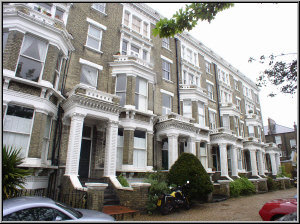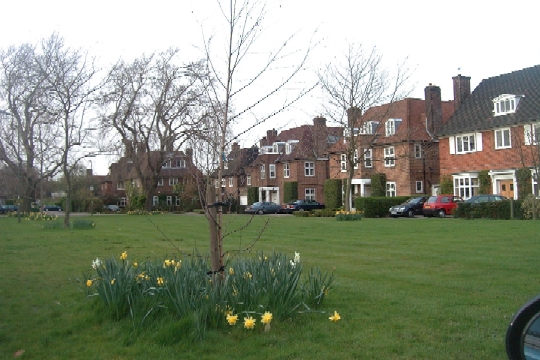201: UK and US property market and economic update
07-01-2008
More doom and gloom. It’s no surprise with oil prices at $142/bbl and inflation has reared it’s ugly head again. Indeed the negative impact of oil prices on inflation could have been far worse so far, but the affects are well and truly now feeding through. In the UK CPI inflation is now 3.1% and looks likely to rise to over 4% in the next year. So this in theory would add at least 1% to interest rates, and push mortgage costs up about 20%. If  oil prices don’t rise further then it’s likely inflation will drop back from 4% to it’s target range 2 to 3% within a year - but we believe oil prices will continue to rise and cause inflation to stay stubbornly high and put pressure on the Bank of England to raise interest rates. They cannot do this indefinitely because this could cause a fully-fledged recession, but they are well and truly between a rock and a hard place on this issue. We believe it’s all down to the oil price – as we’ve been warning for the last 18 months.
oil prices don’t rise further then it’s likely inflation will drop back from 4% to it’s target range 2 to 3% within a year - but we believe oil prices will continue to rise and cause inflation to stay stubbornly high and put pressure on the Bank of England to raise interest rates. They cannot do this indefinitely because this could cause a fully-fledged recession, but they are well and truly between a rock and a hard place on this issue. We believe it’s all down to the oil price – as we’ve been warning for the last 18 months.
Meanwhile the effects of the credit crunch appear to be working their way through, and some interest rate offers have recently been reduced – a good sign of good credit availability to the banks. Berkleys the builders will now start buying large tracts of UK land, stopped paying out dividends and therefore seem to have called the bottom of the property market – they’ve called the bottom and top successfully before. We’d like to re-iterate our view that the property market has not reached the bottom yet, and is unlikely to do so any time soon. It may now take years to properly recover because of high oil prices. This is why we have been advising for 18 months to invest in cities and areas that are positively impacted by high oil prices. You can read the range of Special Reports at the end of this Newsletter.
Landlord Rental Update
The rental market generally remains firm as first time buyers struggle to obtain mortgages because of the credit crunch, and are avoiding taking the plunge because house prices are likely to drop further. This has been a boon for buy-to-let investors as there are plenty of tenants for reasonable quality  accommodation in central – convenient locations. The employment market remains strong and the wave of immigrants needing accommodation shows no sign of reversing. We believe unemployment may rise slightly, but not significantly despite the
accommodation in central – convenient locations. The employment market remains strong and the wave of immigrants needing accommodation shows no sign of reversing. We believe unemployment may rise slightly, but not significantly despite the
Continued UK Housing Shortage
As house prices rose in 2007, the government predicted that the UK needed an additional 300,000 properties per year, yet only a net 180,000 were being built. Now building levels have dropped considerably, probably to something like 120,000 a year - mostly flats. But these government targets should not really change since they  are based on population growth, immigration, aging population, and predicted smaller family units. So we expect a further shortage of property now and in years to come as building levels drop when they should be rising. Any older house in the south of
are based on population growth, immigration, aging population, and predicted smaller family units. So we expect a further shortage of property now and in years to come as building levels drop when they should be rising. Any older house in the south of
In summary, the current conditions are enough to discourage building just when there should be a big building spree for the medium to long term. This lack of building should help support prices into 2010. Yes, transaction levels have halved, and people are staying put, but there is not much sign yet of severe distress, unemployment or a crash. It’s hardly surprising so few people want to move because of massive stamp duty increases and transaction costs – a key reason why so many people are choosing to extend or upgrade existing homes. So for the buy-to-let investor, one can see opportunities abound in southern
US Market and Future Economic Outlook
The dollar has dropped as we all know – by about 25% against most currencies in the last 8 months. This has probably fueled about 25% of the oil price rises. It’s also helped re-balance  public and private sectors have helped the US weather the economic downturn – and it now looks likely that despite the sub-prime crisis, credit crunch, house price declines and general low consume and business confidence levels, the economy will escape any form of recession. Indeed, GDP growth is likely to be well over 1% in the next year or so. Even with oil prices up to $170/bbl, we believe the
public and private sectors have helped the US weather the economic downturn – and it now looks likely that despite the sub-prime crisis, credit crunch, house price declines and general low consume and business confidence levels, the economy will escape any form of recession. Indeed, GDP growth is likely to be well over 1% in the next year or so. Even with oil prices up to $170/bbl, we believe the
For non US investors, there is a dollar currency risk to investing in the USA which needs to be properly considered. If you believe the US dollar will continue it’s decline, it might be worth investing in your home country. It’s also a function of local interest rates, local inflation, where you are f inancing, how much equity you put in yourself (and currency) and which currency you are financing in. We’re no experts at currency risk – not many people are – hence your real estate investment strategy needs to add this risk into your decision making. They say if you don’t understand it – it’s best to avoid it! Overall, if you are a non US American investor and believe the dollar will strengthen – it should increase your appetite for US investments. If you believe the dollar will continue dropping over many years, its probably best to avoid the exposure – unless you intend to settle in the USA one day.
inancing, how much equity you put in yourself (and currency) and which currency you are financing in. We’re no experts at currency risk – not many people are – hence your real estate investment strategy needs to add this risk into your decision making. They say if you don’t understand it – it’s best to avoid it! Overall, if you are a non US American investor and believe the dollar will strengthen – it should increase your appetite for US investments. If you believe the dollar will continue dropping over many years, its probably best to avoid the exposure – unless you intend to settle in the USA one day.
For global investors, our steer is, don’t under-estimate the
· Highly motivated, organized and educated workforce
· Innovation and high technology
· Available financing for business
· Small public sector, large private sector
· Low taxes
· Increasing workforce and population
· Low cost building
· Coal, oil, gas, nuclear, water, forestry, agriculture, minerals
· Oil shale deposits, and tight gas deposits for when oil price rise further 
· Much land, varied climate, good security and political stability
There are not many countries that have so much going for them – yes, the US uses too much oil and gas, but they do produce half of what they need. They have the largest coal reserves in the world – these will not run out. So when the
Most countries have public sectors inefficiencies dragging down their economies – the continued US productivity improvements in manufacturing and services is impressive and it’s difficult for many European countries to compete, particularly now the dollar has declined in value.

